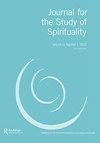董事会认证牧师为跨学科团队成员:精神关怀的认识论方法
IF 0.8
0 RELIGION
引用次数: 4
摘要
跨学科医疗模式需要所有临床学科的专家,包括医学、护理、社会工作和精神护理。精神护理是这些学科中最不被理解的,通常导致使用不合格的人来提供这种护理。这可能会对护理对象造成精神伤害,使该学科无法为护理计划目标提供有意义的贡献。未能利用合格的精神护理从业者是认识论失败的结果。精神,以及对人的精神的关怀,是一个独特的知识领域,它受制于自己的认识论,并有自己的标准来认识和验证其专门领域。美国和加拿大目前的最佳实践要求临床跨学科护理团队中的精神护理专家是经过适当组建、教育、培训和审查的董事会认证牧师。无论其他国家是否需要董事会认证,评判合格精神护理从业者的认识论要求保持不变。这篇文章阐明了对精神护理专家的这些认识论要求是什么。本文章由计算机程序翻译,如有差异,请以英文原文为准。
The board-certified chaplain as member of the transdisciplinary team: An epistemological approach to spiritual care
ABSTRACT Transdisciplinary models of healthcare require specialists in all clinical disciplines including medical, nursing, social work, and spiritual care. Spiritual care is the least understood of these disciplines, often resulting in using unqualified people to provide such care. This may result in spiritual harm for the care recipients and inability for this discipline to provide meaningful contributions to care plan objectives. The failure to utilize qualified spiritual care practitioners is a result of a failure in epistemology. Spirituality, and thus the care of people’s spirits, is a unique domain of knowledge that is subject to its own epistemology and has its own criteria for knowing and validating its specialized domain. Current best practice in the United States and Canada requires the spiritual care specialist on a clinical transdisciplinary care team be a board-certified chaplain who has undergone the proper formation, education, training, and vetting. Whether other countries require board certification or not, the epistemological requirements for adjudicating qualified spiritual care practitioners remains the same. This article spells out what these epistemological requirements are for a spiritual care specialist.
求助全文
通过发布文献求助,成功后即可免费获取论文全文。
去求助
来源期刊

Journal for the Study of Spirituality
RELIGION-
CiteScore
2.50
自引率
7.10%
发文量
25
期刊介绍:
Journal for the Study of Spirituality is a peer-reviewed journal which creates a unique interdisciplinary, inter-professional and cross-cultural forum where researchers, scholars and others engaged in the study and practices of spirituality can share and debate the research, knowledge, wisdom and insight associated with spirituality and contemporary spirituality studies. The British Association for the Study of Spirituality (BASS) organises a biennial international conference and welcomes enquiries about membership from those interested in the study of spirituality in the UK and worldwide. The journal is concerned with what spirituality means, and how it is expressed, in individuals’ lives and communities and in professional practice settings; and with the impact and implications of spirituality in, and on, social policy, organizational practices and personal and professional development. The journal recognises that spirituality and spiritual values can be expressed and studied in secular contexts, including in scientific and professional practice settings, as well as within faith and wisdom traditions. Thus, Journal for the Study of Spirituality particularly welcomes contributions that: identify new agendas for research into spirituality within and across subject disciplines and professions; explore different epistemological and methodological approaches to the study of spirituality; introduce comparative perspectives and insights drawn from different cultures and/or professional practice settings; aim to apply and develop sustained reflection, investigation and critique in relation to spirituality and spiritual practices; critically examine the values and presuppositions underpinning different forms of spirituality and spiritual practices; incorporate different forms of writing and expressions of spirituality.
 求助内容:
求助内容: 应助结果提醒方式:
应助结果提醒方式:


